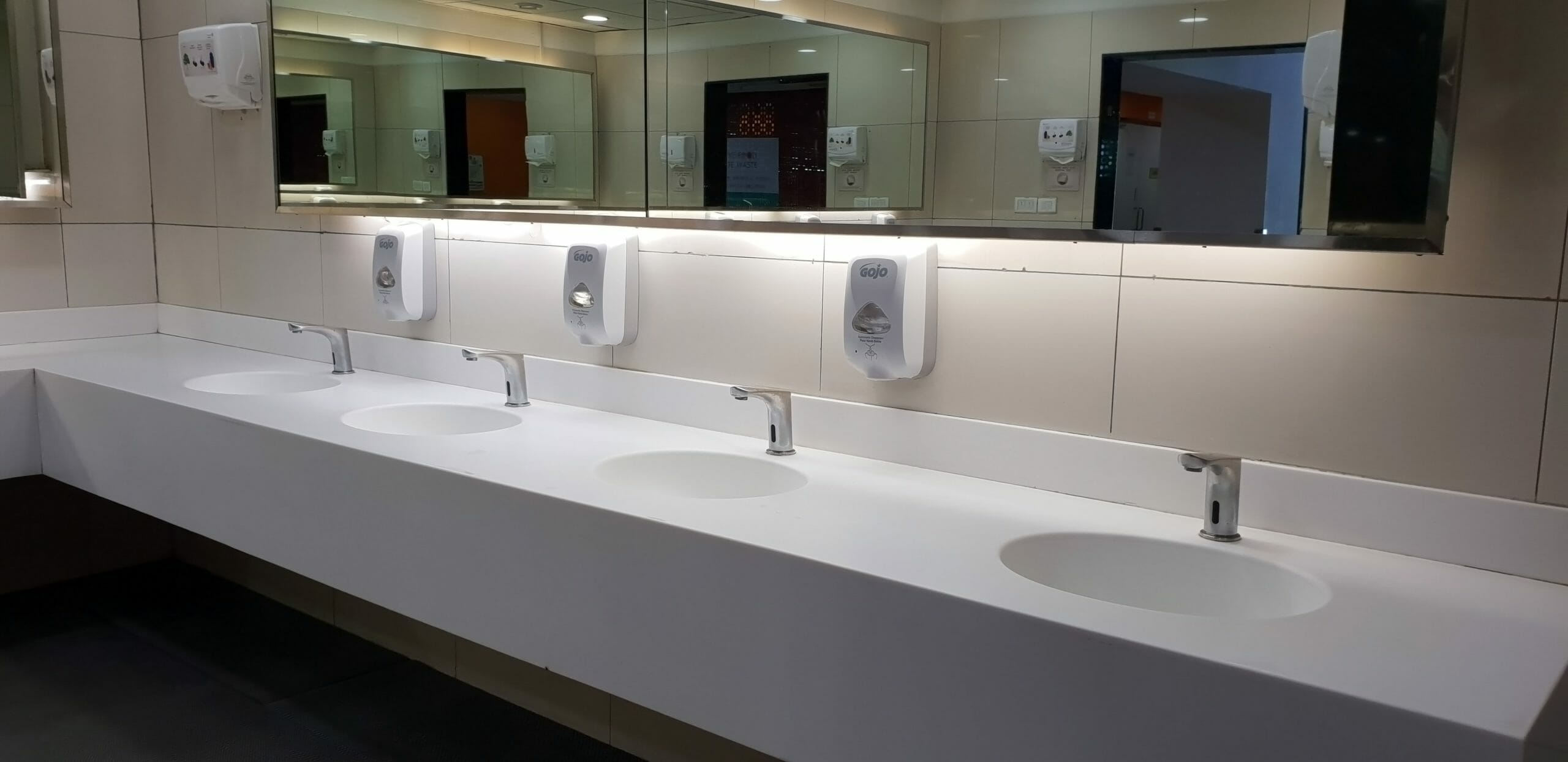
Photo by Syed Hussaini on Unsplash
Hand washing, hoarding and the healing of Naaman
Jennifer Sanborn
March 9, 2020
We’re a hand washing world these days….at least those of us with consistent access to clean water and soap (a reality still denied in many parts of the world). With fears of coronavirus presently spreading faster than the virus itself, we are relearning what it is to properly wash:
- First, wet hands.
- Turn off the water.
- Apply soap and vigorously scrub between fingers and under nails for at least 20 seconds—sing
- “Happy birthday” twice, or any of the choruses included in this Twitter thread.
- Turn on water and carefully rinse.
- Dry with a clean, disposable towel or let air dry.
I expect I’m not the only person to realize in the past few days that my typical washing habits were insufficient—often leading with soap, then water, and scrubbing for five to ten seconds at best.
Yesterday, indulging the full 20 second wash over and over, I had more time than usual at my kitchen sink, and my mind drifted to a Facebook post in a neighbors group that described the disappearance of every bottle of hand sanitizer in our local grocery store—a community and state where, at present, there is not a single positive test for COVID-19. As I noted both judgment at this act of hoarding and an unbidden fear rising (Why didn’t I get hand sanitizer when I was at the store???), I continued to scrub and remembered a ritual I have used to close sessions on financial practice as spiritual practice.
The set-up is the story of Naaman in 2 Kings 5. Naaman was a military commander with leprosy in search of healing and he was disappointed when the prophet Elisha directed him to wash seven times in the Jordan River. Where was the waving of hands? The incantations and prayers? The “big fix”? Despite his anger and confusion, Naaman eventually complied with Elisha’s direction, and he was healed.
I use the story and the ritual to remind people that financial wholeness is not found in winning the lottery. Our fears of scarcity, our inclination to hoard, and our complicity in the harms of economic injustice will still be there no matter the size of our investments. Healing and wholeness are found in washing in the muddy rivers of our own lives. They are found in everyday practices that align our resources with our values—with God’s values, actually, and that can be a lot harder. Naaman would tell us healing is worth it, though, even if we feel the cure we’re offered is beneath us.
Healing and wholeness are found in washing in the muddy rivers of our own lives. They are found in everyday practices that align our resources with God’s values.
As you, too, will wisely be washing your hands more in the days, weeks, and months to come, I share here the ritual so you can alternate your singing with prayers and reflection—confessions of our fears and insecurities, and an invitation to God’s “enough-ness” in all the places and spaces where we desire to be made whole. While many of the washing prompts mention money or finances, the words can be altered to express other interconnected realities. The present global climate can draw out the worst in us, yes, but it is also an invitation to offer our best.
Friends, imagine yourself beside the ordinary waters of your life. It might be a muddy river near your own home, the ocean, a favorite lake, the bathtub, or a sink filled with hot soapy water awaiting dirty dishes.
For each of these phrases of prayerful offering, imagine dipping yourself in these waters and washing your hands or your body clean.
Wash once to clean off any fear that things will never be better financially than they are—for yourself, your family, your congregation, your region, and the world.
Wash once to acknowledge that you come from a money story… a story that shapes but does not bind you…a story that is still being written.
Wash once to repent of your complicity with the vast economic inequality that has created a world where some of us have far too much and some of us far too little.
Wash away the insecurity that leads to hoarding—any action that lays claim to more than enough.
Wash once to tend to and nurture where you feel poor in body or circumstance.
Wash once to tend to and nurture where you feel poor in spirit.
And finally, wash to make way for God’s economy of enough, for the abundance that we experience in community and sharing, and the generosity that flows from this.
May your hands be clean, yes, and may your heart be made clean as well. May your body be healthy, and your spirit be made whole.
Jennifer L. Sanborn is program director of In Support of Excellence—American Baptist Home Mission Societies’ financial-literacy program for clergy and lay leaders.
The views expressed are those of the author and not necessarily those of American Baptist Home Mission Societies.


